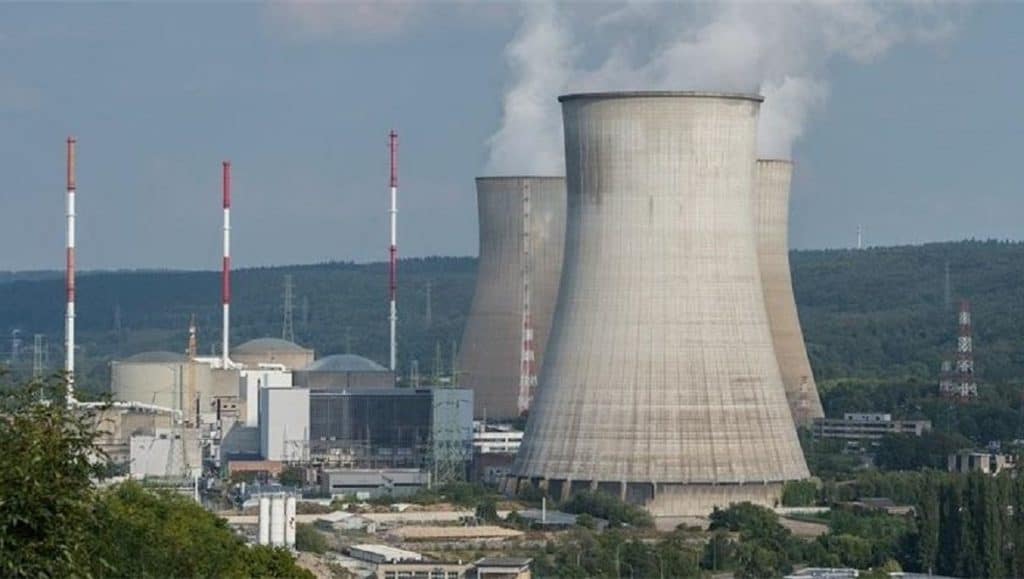World Geostrategic Insights interview with Kenneth N. Luongo on the reasons pushing nuclear power back to the global agenda, U.S. strategy as defined by the “International Nuclear Energy Act 2022”, China’s nuclear energy policy, and prospect for a U.S-China collaboration or greater rivalry and confrontation on nuclear power.

Kenneth N. Luongo is a leader in global nuclear and transnational security policy. He is the founder and president of the Partnership for Global Security (PGS) and the creator of the Global Nexus Initiative. He served as the Senior Advisor to the U.S. Secretary of Energy for Nonproliferation Policy and simultaneously at the Department of Energy as the Director of the Office of Arms Control and Nonproliferation, Director of the Russia and Newly Independent States Nuclear Material Security Task Force and Director of the North Korea Task Force.
– Nuclear power is a controversial but essential energy source, and it may be undergoing a renaissance due to concerns over energy security and independence, climate change, and geopolitical confrontations. Policymakers around the world are refocusing on nuclear energy, which may now have a chance to become an important part of the global energy grid. What are the economic, technological and environmental benefits of nuclear power? How can nuclear energy be a solution for improving the global energy and environmental landscape and strengthening the security of countries?
Ken Luongo – It seems that the era of nuclear power being a controversial or unwelcome source of energy is fading away. Certainly in the U.S., nuclear power was opposed strongly by environmentalists in the 1970’s and 80’s and as a result became a political wedge issue between the two major parties. However, certainly during the last two years, the role of nuclear energy has been reconsidered and it has become the source of rare bipartisan agreement in a deeply fractured U.S. political environment. It no longer is a political wedge issue in the U.S. The driver, for the most part, has been its zero-carbon energy production. But it also is gaining recognition for geopolitical and reliability reasons at a time when hydro, wind, and solar power are encountering challenges both in operation and in the ability to build to scale and Russia and China are becoming sharper rivals.
Outside the U.S., both climate change and energy security have been important issues that have required nations to reconsider the nuclear power value proposition. The most prominent are Japan and South Korea. Both nations soured deeply on nuclear energy in the wake of the Fukushima nuclear accident. But new leaders have now openly embraced nuclear energy re-starts and expansion. For nations with minimal domestic energy reserves, like Japan and South Korea, being more self-reliant and having reliable energy are important for domestic, economic, and geopolitical reasons.
The situation in Europe is somewhat mixed, although the trend is toward new nuclear power development. The European Commission has certified nuclear power as a green technology within certain parameters. Certainly, France has proven the value of nuclear power for zero-carbon objectives, although it also is facing the challenges of an aging fleet and the warming rivers that provide cooling water for the reactor operation. In Eastern European nations that are EU or NATO members, the role of nuclear energy is rising in importance and the goal is to eliminate dependency on Russian natural gas and coal in the wake of the invasion of Ukraine, as well as meet climate commitments. This also is true for the Nordic nations, like Finland and Sweden, and in the U.K. Of course, the outlier in Europe is Germany. Germany is reluctant to keep its remaining nuclear reactors operating despite the deep energy crisis it is facing this year and perhaps for several years to come. I think other nations are looking at the energy decision-making process in Germany as an example of what not to follow.
Zero-carbon, energy reliability, and energy security/geopolitics are the three sides of the triangle that are pushing nuclear power back onto the global agenda.
– Bipartisan legislation has been passed in the United States to restore the United States’ role as a leader and partner in nuclear energy. In fact, the International Nuclear Energy Act 2022 aims to facilitate a “whole-of-government” strategy for international nuclear cooperation, reaffirm U.S. global leadership in civilian nuclear technologies, and combat growing Russian and Chinese influence on civilian nuclear energy programs around the world. In your opinion, what impact will this bill have? Will it succeed in re-establishing the United States as the world leader in nuclear energy?
Ken Luongo – The “International Nuclear Energy Act” is a response to several trends. The most prominent is the challenge from China in the geopolitical and technology competition environment. The others are the weakened “muscle memory” of the U.S. as a once-dominant supplier of global nuclear technologies, and the reaction to the Russian invasion of Ukraine.
I consider this bill to be quite important. It may be interpreted as responding to a lack of urgency in the U.S. executive branch on the nuclear export issue. However, there actually is quite a lot going on in the various agencies around the issue of nuclear exports. But, what is lacking is a comprehensive strategy for how to compete for the market share that exists and is emerging. The real value of the bill is in creating a central and dedicated coordinator and office for this activity in the White House. At the moment there are several White House officials with parts of this responsibility, but not a single dedicated office that can devote all of its attention to the nuclear export ecosystem. If that was established, it could create a coherent, integrated “whole of government” strategy that could be carried out by the various executive branch agencies with coordination from the WH.
The bill has not been passed by the Congress at this time. And, the opportunity for it to pass during the current Congress is quickly fading. There is a major election for the Congress this November and it will determine the control of the House and Senate for the next two years. After the election there is a “lame duck” period from mid-November through mid-January. Important legislation has been passed during this period and it is possible that this bill may be packaged with others and voted on, but that is not guaranteed. If it doesn’t pass it will need to be reintroduced next year in the new Congress.
– According to Wang Shoujun, president of the China Nuclear Society, who spoke at the opening ceremony of the 29th International Conference on Nuclear Engineering, held on Aug. 9 in Beijing, China is expected to approve six to eight new nuclear units each year between 2022 and 2025. Wang also pointed out that after more than 30 years of development, China has gone from being a novice to a pioneer in the nuclear power industry. What is your opinion on China’s policy regarding nuclear energy? Do you think there could be some room for a U.S – China collaboration on nuclear, perhaps to enhance the common goal of combating climate change, or will it become a strong factor of contrast, fueling their geopolitical rivalry?
Ken Luongo – China is a major nuclear power operator and its fleet is growing. If all of its building plans come to fruition, it will be the largest nuclear operating nation in the world at some point. It has not had a major nuclear accident and it has collaborated with some of the top western nuclear power companies, including from the U.S. and France. China also is in need of significant scaling of clean energy. It still is highly dependent on coal. So, nuclear energy makes sense for China as a domestic energy source.
However, China has not had significant success in exporting reactors and some European nations have excluded it from competing for its nuclear business. Still, it is having success in marketing its reactors in South America, and through the Belt and Road Initiative, it has a significant web of energy and infrastructure relationships with nations spanning the globe. This is particularly true with developing economy nations, which could be a significant market for the next generation of smaller, and modularized reactors. This competition for next-gen market share could be a significant battle between the U.S. and China.
Regarding cooperation, both nations should find areas where they have common ground. Two of those areas that are central to nuclear energy are zero-carbon power and the prevention of nuclear weapons proliferation. However, just because those issues are important does not mean that the U.S. and China will agree on all aspects of them.
At the moment, the U.S. is pouring billions of dollars into the next generation of nuclear technology. The scale of this government investment is unprecedented when compared to recent decades. The reason is that there is a bipartisan consensus on the value of nuclear energy, the persistent challenge to find zero-carbon energy, and the rising importance of nuclear geopolitics and energy security.
It is this latter issue of nuclear geopolitics and energy security that is central to the U.S.-China relationship in the nuclear energy area. The U.S. has been clear both in the Trump and Biden administration’s that the U.S. needs to regain its prowess as a nuclear technology exporter. It is important for domestic energy and economic reasons, to maintain high standards of global nuclear governance and non-proliferation, and to establish long-term energy relationships with other countries.
The governance and policy framework for the coming generations of smaller nuclear reactors is not well established and significant work will need to be done to develop an effective regime. This is less of a concern for small modular reactors that are essentially scaled down versions of large GW-sized reactors, but it is a serious concern for advanced reactors that will operate on novel fuel cycles. The development of this new governance framework is an area where the U.S. and China could cooperate. From a global security perspective, any expansion of nuclear energy will require that international security, nuclear security, and nuclear safety be top level considerations now and going forward. But, it is unclear if China views these issues with the same high priority that the U.S. does. I hope that they would, but there is a clear divide between the approaches to nuclear export by democratically-governed nations like the U.S. and authoritarian nations like China and Russia.
In general, I think export competition will endure and be the dominant feature of U.S.-China international nuclear energy relations. But, I expect there will be productive collaboration where objectives intersect.
Kenneth N. Luongo – President at Partnership for Global Security







